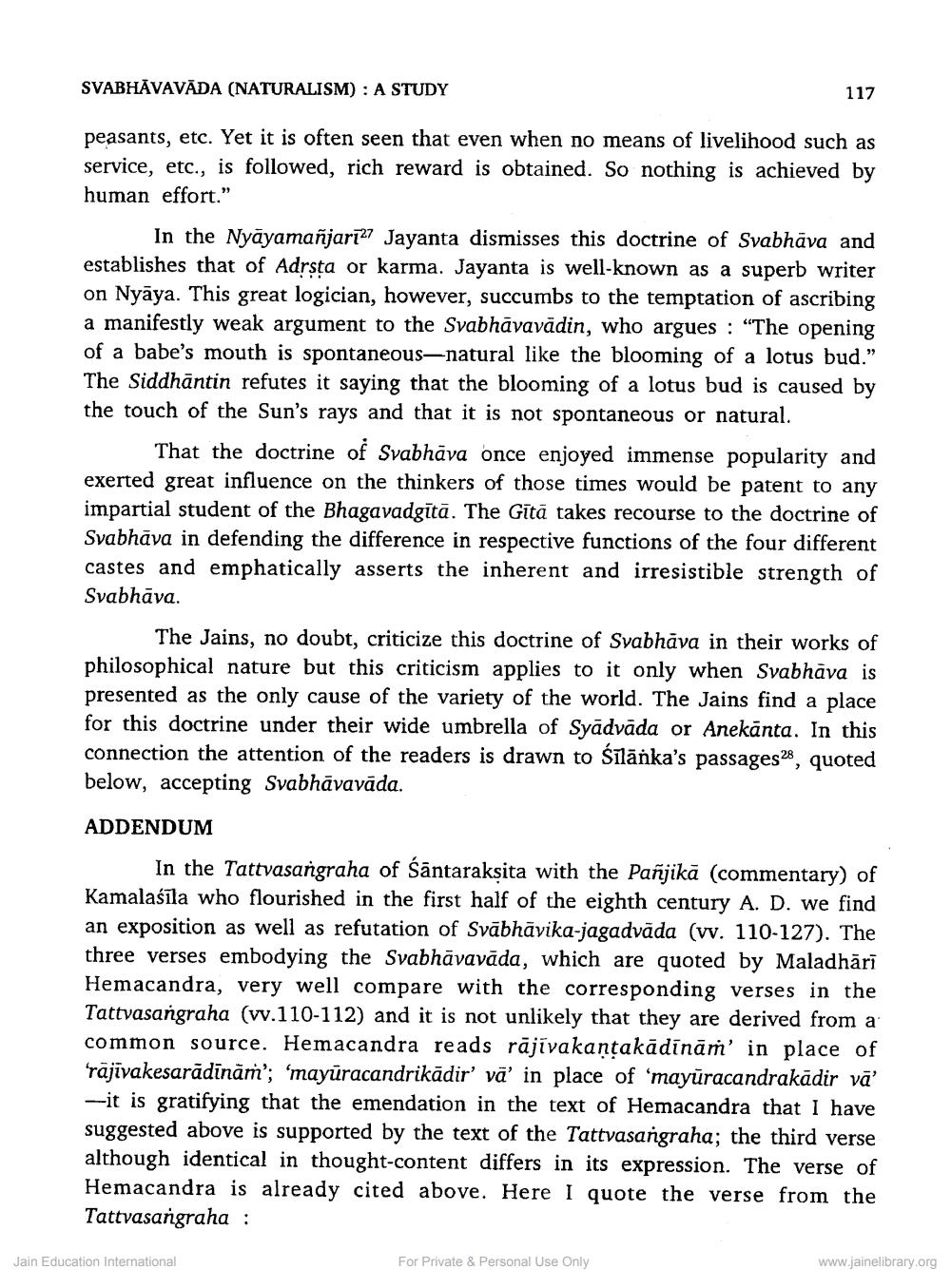________________ SVABHAVAVADA (NATURALISM) : A STUDY 117 peasants, etc. Yet it is often seen that even when no means of livelihood such as service, etc., is followed, rich reward is obtained. So nothing is achieved by human effort." In the Nyayamanjari27 Jayanta dismisses this doctrine of Svabhava and establishes that of Adrsta or karma. Jayanta is well-known as a superb writer on Nyaya. This great logician, however, succumbs to the temptation of ascribing a manifestly weak argument to the Svabhavavadin, who argues : "The opening of a babe's mouth is spontaneous-natural like the blooming of a lotus bud." The Siddhantin refutes it saying that the blooming of a lotus bud is caused by the touch of the Sun's rays and that it is not spontaneous or natural. That the doctrine of Svabhava once enjoyed immense popularity and exerted great influence on the thinkers of those times would be patent to any impartial student of the Bhagavadgita. The Gita takes recourse to the doctrine of Svabhava in defending the difference in respective functions of the four different castes and emphatically asserts the inherent and irresistible strength of Svabhava. The Jains, no doubt, criticize this doctrine of Svabhava in their works of philosophical nature but this criticism applies to it only when Svabhava is presented as the only cause of the variety of the world. The Jains find a place for this doctrine under their wide umbrella of Syadvada or Anekanta. In this connection the attention of the readers is drawn to silanka's passages28, quoted below, accepting Svabhavavada. ADDENDUM In the Tattvasangraha of santaraksita with the Panjika (commentary) of Kamalasila who flourished in the first half of the eighth century A. D. we find an exposition as well as refutation of Svabhavika-jagadvada (w. 110-127). The three verses embodying the Svabhavavada, which are quoted by Maladhari Hemacandra, very well compare with the corresponding verses in the Tattvasangraha (w.110-112) and it is not unlikely that they are derived from a common source. Hemacandra reads rajivakantakadinam' in place of 'rajivakesaradinam; 'mayuracandrikadir' va in place of 'mayuracandrakadir va' -it is gratifying that the emendation in the text of Hemacandra that I have suggested above is supported by the text of the Tattvasangraha; the third verse although identical in thought-content differs in its expression. The verse of Hemacandra is already cited above. Here I quote the verse from the Tattvasangraha : Jain Education International For Private & Personal Use Only www.jainelibrary.org




